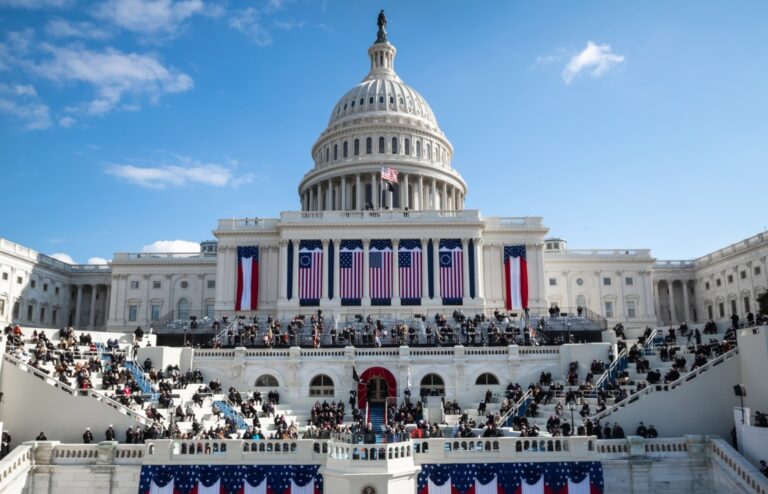In 2024 the United States of America will elect the 47th president in its history. But the road until Election Day (November 5) is still long. The next six months will be dedicated to choosing a candidate for each party through primaries.
Table of Contents
How do primaries work?
The vast majority of US states, 40 out of 50, organize primaries as follows. During a designated day, voters and electors can go to the polls and vote for the candidate they prefer, with a written and secret vote. These consultations can be closed, if only members of the relevant party can vote. Open, if voting is open to everyone. Or semi-open, where only members of other parties cannot participate.
In the other 10 states, as in the case of Iowa, the caucus system is used, the name of which derives from a Native American language term meaning “to gather and make noise”. In this case the vote is preceded by a series of debates and rallies held in a public place, where the preference for the presidential candidates is discussed and publicly expressed.
Caucuses can also be open or closed, and it is not mandatory for both parties to use the same system in the same state. For example, in Nevada, Missouri, North Dakota, Alaska, Utah and Hawaii, Republicans will hold caucuses while Democrats will use simple elections. In addition to Iowa, both parties will also hold caucuses in Idaho and Wyoming.
The 2024 US electoral calendar
Below are the main stages of the marathon to 2024:
JANUARY 15 – The Republicans’ race for the White House has begun with the caucuses in Iowa: Donald Trump landslide victory.
JANUARY 23 – New Hampshire votes for the presidential primaries, still called by the state Democratic Party despite the change of calendar decided by the national committee.
FEBRUARY 3 – First stage in South Carolina of the Dem primaries after the change of calendar decided by the party.
FEBRUARY 6 – Nevada hosts the Dem primaries, two days later it’s the turn of the Republican caucuses.
FEB 24 – Fifth stage of the GOP primaries in South Carolina, a crucial state because Nikky Haley plays at home.
FEB. 27 – Michigan goes to the vote (but the GOP caucuses are on March 2)
MARCH 5 – It’s Super Tuesday: 16 states vote, including Alabama, California, Colorado, Texas, Minnesota, Massachusetts, Virginia and North Carolina.
MARCH 19 – It’s the turn of the presidential primaries in Florida, Arizona, Kansas, Illinois and Ohio.
APRIL 2 – Voters in New York and Wisconsin, along with 5 other states, vote.
APRIL 23 – Vote for the swing state of Pennsylvania.
JUNE 4 – The most important primaries close with the last votes in Montana, New Jersey, New Mexico, South Dakota and Washington DC.
JULY 15-18 – The Republican convention takes place in Milwaukee, called to certify who will be the official candidate of the party.
AUGUST 19-22 – Chicago, Barack Obama’s city, hosts the Democratic convention.
SEPTEMBER 16 – The first debate between the presidential candidates is held at Texas State University.
SEPTEMBER 25 – Vice presidential candidates compete at Lafayette College, Pennsylvania.
OCTOBER 1 – Second debate between the presidential candidates.
OCTOBER 9 – Third comparison between the aspirants to the White House.
NOVEMBER 5 – It’s Election Day, America goes to the vote.
JANUARY 20, 2025 – It’s Inauguration Day, the new president takes office.
Predictions on the winners: two clear favorites
According to analysts, you have to go back at least to 2000 (with Bush and Al Gore) to find the last time that both parties had such clear favorites: Joe Biden, incumbent president of the Democrats, and Donald Trump, the former president of the Republicans, who could thus obtain a revenge.
Challenging the incumbent, which is a difficult undertaking regardless, will be Congressman Dean Phillips of Minnesota and writer and activist Marianne Williamson.
Anti-Trump Republicans, however, seem mainly interested in two candidates. Namely, former South Carolina governor Nikki Haley, and Florida governor Ron DeSantis.
It is more than likely that 2024 will finally bring back the challenge between Joe Biden and Donald Trump. Despite the 91 charges brought against him, the former president seems destined to win the Republican nomination.
However, various legal proceedings weigh on Trump’s electoral race, including the possible start on March 4 – the eve of Super Tuesday – of the trial for interference with the 2020 vote.












